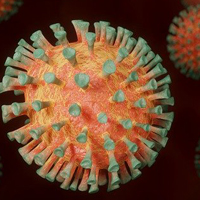Health literacy and preparedness of health workers in the private health sector towards the COVID-19 pandemic: Need for integration into the nationwide response

All claims expressed in this article are solely those of the authors and do not necessarily represent those of their affiliated organizations, or those of the publisher, the editors and the reviewers. Any product that may be evaluated in this article or claim that may be made by its manufacturer is not guaranteed or endorsed by the publisher.
Authors
The private health sector has the potential to participate in the COVID-19 pandemic response. The study aimed to assess the health literacy, perceptions, practices, willingness to participate and opportunities for engagement of the private health sector in the COVID-19 response. A cross-sectional survey was carried out among health workers in private health facilities in Edo Central and Edo North Senatorial districts of Edo state between May and June 2020. Data were collected using pre-tested questionnaires and analysis carried out using Statistical Package for Social Science (SPSS). Chi-square test of significance and logistic regression were applied at 5% cut off. A total of 153 health workers participated giving a response rate of 75.0%. Eighty-eight (57.5%) respondents had good knowledge of COVID-19 and 80 (52.3%) held negative perceptions towards COVID-19. Ninety-five (62.1%) respondents believed private health facilities had a role to play in the response particularly in the area of suspected case screening (85.4%). Thirty-one (20.3%) respondents indicated their willingness to participate in the COVID-19 response if their facilities were invited to. Sixty-one (39.9%) and 92 (60.1%) respondents respectively held poor and good practices towards COVID- 19 prevention, with practice significantly associated with educational level (χ2 = 14.10, P < 0.01), profession (χ2 = 15.28, P = 0.01). and previous training in infection prevention and control (IPC) (χ2 = 18.16, P < 0.01). The resources available from the private sector to support the response can be harnessed through engagements with medical directors and health workers in the sector to identify areas of collaboration, address identified gaps in knowledge, improve perception and participation.






